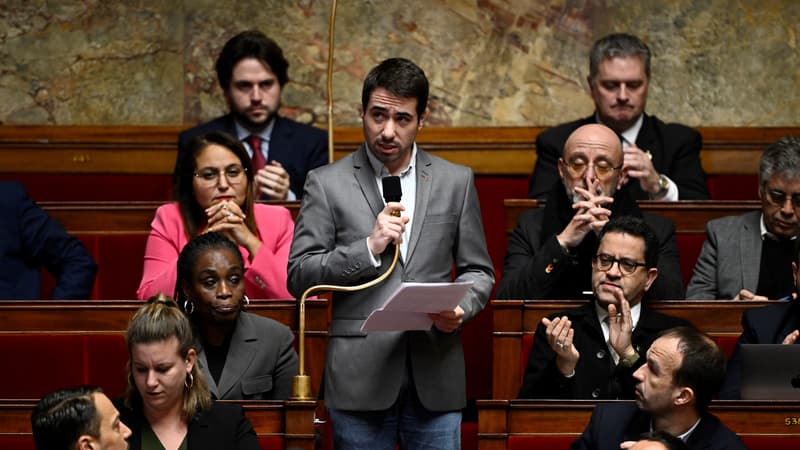36 hours after admitting being caught buying drugs, the fate of rebel MP Andy Kerbrat divides the political world. If the left supports him and insists on drug treatment issues, several members of the government ask him to resign.
Among those who quickly took out their weapons to demand his departure from the National Assembly, is Bruno Retailleau.
“While drug trafficking is taking hold in France with its procession of violence, it is not tolerable to see a deputy of the Republic buying synthetic drugs from a street dealer,” scolds the Minister of the Interior, Bruno Retailleau, on X (former Twitter).
“He must resign from his mandate”
Before judging that a parliamentarian has “the duty to set an example”, which requires Andy Kerbrat to “draw the consequences of his actions.”
The same story for Laurence Garnier, Secretary of State for Consumer Affairs and one of his closest friends.
“Out of respect for the people of Nantes who have placed their trust in him and dedicate all their energies to his necessary recovery, he must resign from his mandate,” says the former LR senator, a constituency neighbor of the LFI deputy.
In a statement, Andy Kerbrat announces that he has “started a treatment protocol” to “fight his drug addiction.” He also indicates that he is “at the disposal of justice.”
“The question of his resignation is raised”
According to information from Current values who revealed the matter, Andy Kerbrat was in possession of 1.35 grams of 3-MMC, a designer drug booming in France, often used as part of chemical sexthat combines drug use and sexual relations.
“From the moment a deputy commits an infraction, the question of resignation arises and he is asked for it,” said RN deputy Sébastien Chenu on our radio this Wednesday.
“Addiction is a public health problem”
Andy Kerbrat had already spoken to journalists about his deep discomfort. He spoke to an RMC journalist about his excessive consumption of medications, particularly sleeping pills, to combat insomnia and a disjointed pace of life linked to political life.
A former advisor at a call center, the young man described himself as an anomaly in this new world for him. the National Assembly. Last February, Andy Kerbrat also revealed that he had been the victim of a sexual predator when he was 3 years old. Today, in retirement, the elected official says he wants to cure his addictions.
“Beyond me, addiction is a public health problem and has the right to be treated as such,” says the rebel deputy in a press release.
“He only hurt himself.”
Reading this box and pointing out the issue of drug addiction treatment, the left has largely defended Andy Kerbrat, not to mention his resignation.
“Yes, he must remain in office,” says environmentalist parliamentarian Sandrine Rousseau at the BFMTV microphone. “Consumers must be taken for what they are, that is, people who must be helped to escape our addictions.”
The diagnosis is also shared by Éric Coquerel, who believes that “absolutely” he should resign or be excluded from the LFI group.
“We will not add a double penalty to a possible judicial sentence, nor above all, to the health course that he himself wants to impose,” says the rebel deputy in the Public Senate this Wednesday.
Jean-Luc Mélenchon spoke for his part of “his very friendly support in this fight.” “We will surround him for that. He has only harmed himself,” analyzes the founder of La France Insoumise.
Precedents
This is not the first time that a deputy has been implicated for his drug use. The doctor and socialist senator Bernard Jomier recalls that “addictions affect the entire society, including parliamentarians and ministers.”
In March 2023, Renaissance MP Emmanuel Pellerin admitted to possessing and using cocaine before being banned from Renaissance.
He retired from his duties for a time before returning to the Assembly for 3 months, once the case was dismissed by the courts. He did not run again in the last legislative elections.
Senator Joël Guerriau, accused last November of attempted sexual assault by chemical submission, also ruled out any resignation despite the request of the president of the upper house, Gérard Larcher, and a hundred elected officials. The chosen one had tested positive for amphetamines, cannabis, cocaine, methadone and MDMA.
Source: BFM TV


